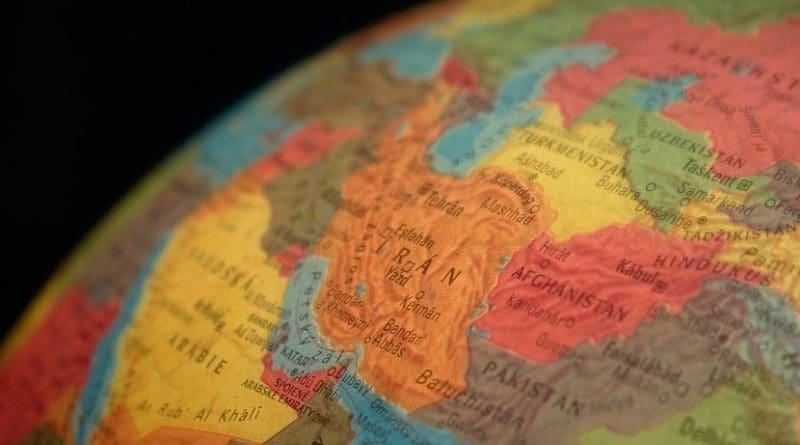Normalization Splits The Arab World – OpEd
On March 28, 2022, the town of Sde Boker in Israel’s Negev region hosted an historic event – a meeting of the top diplomats of four Arab nations with those of the US and Israel. In a joint declaration all six endorsed the objectives of the Abraham Accords, reaffirmed the importance of fostering ties between Israel and the broader Middle East, and declared that the conference represented the launch of what would become a permanent regional forum.
On May 26 Iraq’s parliament approved legislation that criminalizes any form of normalization with Israel. All Iraqis, whether inside or outside the country, are banned from establishing relations with Israel, visiting the country, or promoting normalization. The legislation applies to all state officials, including those in the semi-autonomous northern Kurdistan region, as well as government institutions, private sector companies, the media, foreign companies and their employees.
The law stipulates that any Iraqi who visits Israel will be sentenced to life imprisonment, and those who establish any political, economic, or cultural relations with Israeli institutions, even through social media networks, will be sentenced to death.
At the joint press conference in Sde Boker, Israel’s foreign minister, Yair Lapid, said the forum was building “a new regional architecture based on progress, technology, religious tolerance, security and intelligence cooperation” intended, he emphasized, to intimidate and deter “our common enemies – first and foremost Iran and its proxies. They certainly have something to fear.”
Some commentators identify two distinct blocs in the Arab world – a so-called “axis of normalization” consisting of moderate Sunni-Arab states that endorse formal or informal relations with Israel, and an “axis of resistance” comprising Iran and Iranian-supported bodies comprised of Shia-led governments such as Syria, quasi-states such as the Houthis in Yemen, and non-state groups like Hezbollah. It is possible the boundary between these blocs will widen, as remaining Arab states determine whether or not to normalize relations with Israel.
A few states, such as Kuwait and Qatar remain uncommitted on the issue, maintaining ties with both the US and Iran. Saudi Arabia, which is also currently on the fence, is being wooed by its Gulf neighbors and Israel to join the Abraham Accords, and may be on the point of succumbing since it recently invested $2 billion by way of its sovereign-wealth fund into two Israeli tech start-ups. Turkey’s roller-coaster relationship with Iran has not prevented it from recently rebooting its relations with Israel.
Within the rejectionist axis Tunisia and Algeria have cordial ties with Iran. Tunisia has on several occasions considered criminalizing normalization with Israel – the last in June 2021. As for Algeria, the Moroccan-Israeli accord has turned it into a hostile state. Algeria has consistently opposed Morocco’s claims on Western Sahara, which were recognized by the US and Israel as a quid pro quo for Morocco joining the Abraham Accords. In any case, relations between Algeria and Iran have been improving fast in recent years, and Algeria now stands virtually aligned with Iran and China against the West.
Getting the anti-normalization law through the Iraqi parliament was a political coup by Muqtada al-Sadr, a leading Iran-supporting Iraqi politician and Shia cleric. He heads the Sairoon Alliance, the largest bloc in Iraq’s parliament. Sairoon, which won 74 seats out of a possible 329 in the parliamentary elections held in October 2021, out-maneuvered the not inconsiderable opposition emanating from Iraq’s semi-autonomous Kurdistan region. Many Kurdish political leaders have close and long-lasting links with Israel.
On September 24, 2021, a conference in Erbil, the capital of Iraqi Kurdistan, hosted more than 300 delegates from across Iraq including tribal and religious leaders, and actually called for the normalization of ties between Iraq and Israel, along the lines of the Abraham Accords: “We call for Iraq to enter into relations with Israel and its people through agreements similar to the Arab countries that have normalized.” The motion was swiftly condemned by the Iraqi government, which dubbed the event a “illegal meeting”, and the judiciary issued arrest warrants for leading participants.
Iran controls, either directly or by way of proxies, many of the state and military instruments within Iraq, and it has been pressuring the country to clamp down on the growing Israeli influence in the Kurdish region. In March Iran’s IRGC (Islamic Revolutionary Guards Corps) claimed to have carried out a ballistic missile attack against alleged Mossad targets in Erbil, possibly over plans to export Kurdistan’s gas to Turkey via a new pipeline involving Israel. The Kurdish Regional Government estimates potential gas reserves in the Kurdistan Region at 200 trillion cubic feet.
But all is not well within the Kurdish body politic. It is split into two camps: the Patriotic Union of Kurdistan (PUK), and the Kurdistan Democratic Party (KDP), and the leaders are trying to overcome the discord between them. A visit to the KDP by Kurdistan Region president, Nechirvan Barzani, of the PUK on May 21 was aimed at starting the process, but also with addressing the vexed question of forming a national government. Ever since the parliamentary elections of October 2021, Iraq has been without a government. Kurdish involvement is crucial, since under Iraq’s new constitution the presidency is reserved for a Kurd.
The KDP and the PUK have allied themselves with opposing sides in the political bartering. The PUK opted to join a pro-Iran Shiite Arab alliance despite its differences with them over links with Israel, while the KDP has become part of a tripartite alliance with the Sadrist bloc and a Sunni Arab grouping that is equally anti-Israel.
In short, both Israel-supporting Kurdish parties are prepared to collaborate with the political groupings that passed Iraq’s anti-normalization law. What is more, the next president of Iraq, whenever he is elected, has to be a Kurd. This must indicate that al-Sadr’s successful maneuver on May 26 in Iraq’s hamstrung parliament may not be the last word on the subject.

